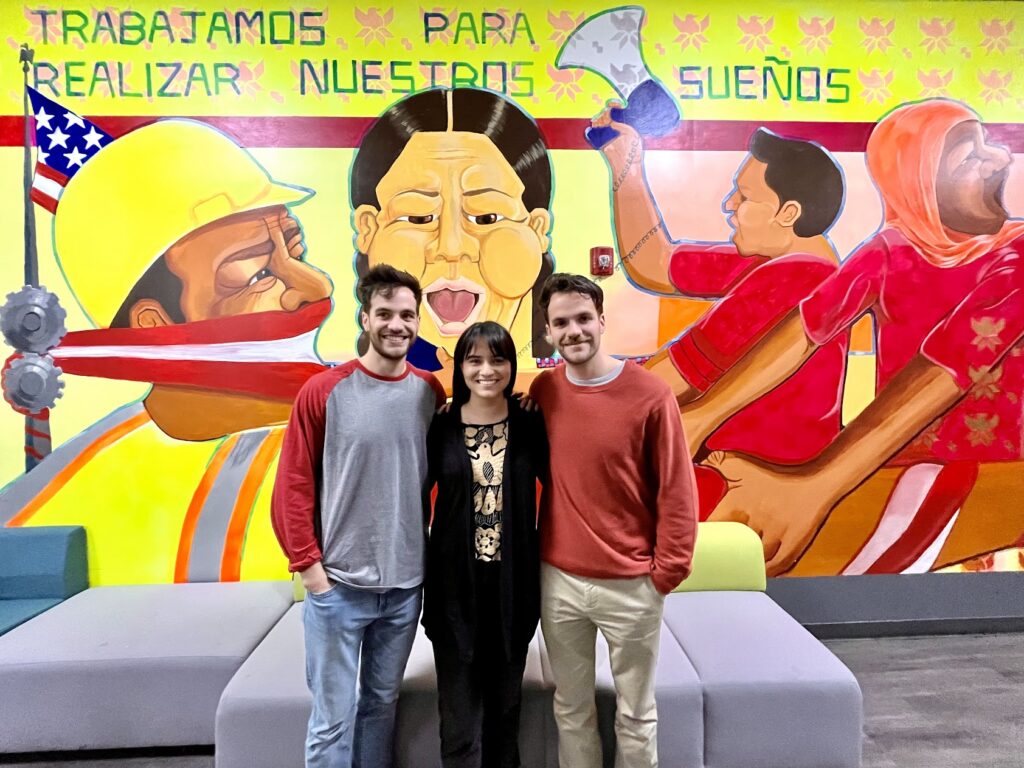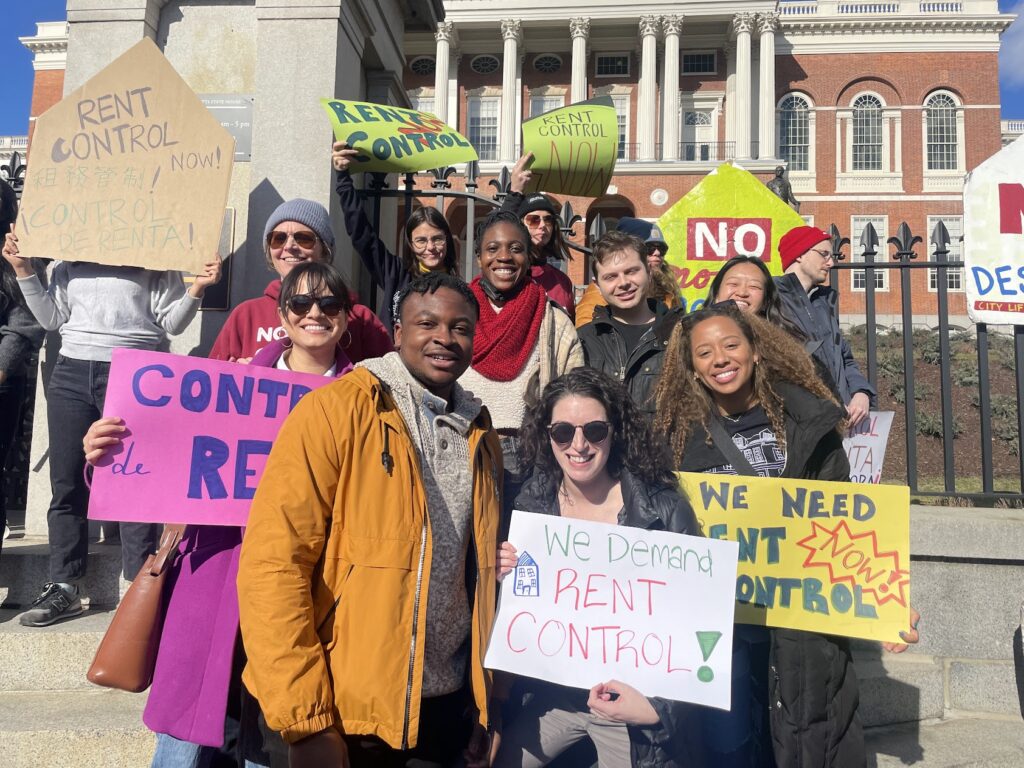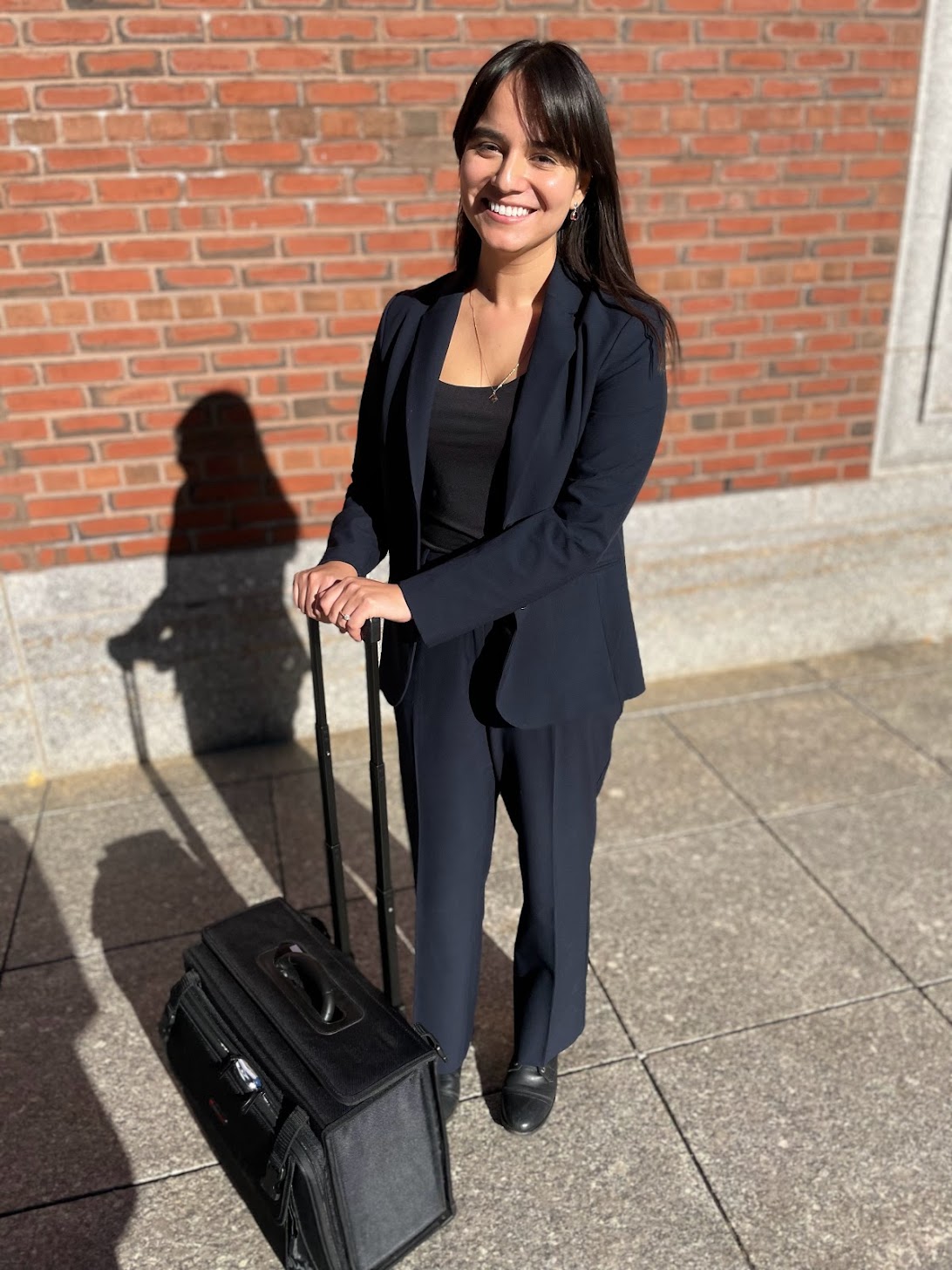Suzanna Bobadilla served as the Harvard Legal Aid Bureau’s President from February 2022 through February 2023, and is a student attorney in the Bureau’s Wage Practice. Just weeks before her graduation, HLAB sat down with her for a conversation about her time at HLAB and her commitment to workers’ rights, including the rights of workers with caregiving responsibilities.
After graduation, Suzanna is working as a Litigation Fellow at Katz Banks Kumin, a plaintiff’s side public interest law firm in Washington, D.C., that focuses on employment discrimination and whistleblowing.
“I had even written my law school application on employment discrimination,” said Suzanna, “and I really feel lucky that I’ve been able to continue that throughline in law school through my classes and the jobs I’ve been doing.” Suzanna notes that HLAB’s Wage Practice was her reason for applying to the Bureau; while the Law School also has an Employment Law clinic, Suzanna wanted to focus on serving low-wage workers, which HLAB better enabled her to do.
Suzanna had come to law school with the intention of focusing on workers’ issues, and has devoted her time at HLS and at HLAB to learning more about the intersecting legal fields. While in law school, she took classes on Employment Discrimination, Employment Law, and Labor Law; she also took a class on Civil Rights Litigation, which included a chapter on Title VII, a seminar called “Law and the Legal System through the Lens of Latinx/a/o Communities,” and two reading groups called “Current Topics in the Law of Work and Gender” and “The Struggle for Workers´ Rights on Film.”
During her 1L summer, she worked at A Better Balance, a nonprofit that advocates for workers on caregiving issues, such paid family and medical leave, fair scheduling, and accessible, quality childcare and eldercare. That same summer and into her 2L and 3L years, Suzanna also worked with the General Counsel at the National Domestic Workers’ Alliance (NDWA). Suzanna had worked with the NDWA prior to coming to law school on a project to pandemic relief funds; the project set up different partnerships with different cities who gave COVID-relief funds to workers who were left out in federal funding.
During her 3L year, Suzanna has written a paper called “Silencing Settlements: The potential backfire effect of banning non-disclosure agreements within workplace discrimination disputes,” which “looks at the growing trend of anti-NDA litigation across the country, both on the federal and state level,” she explained. “We’re seeing more and more restrictions being put on NDAs, particularly with sexual harassment and employment discrimination. My paper cautions against a full ban of NDAs in post-dispute settlements and encourages advocates to consider survivors’ interests in electing to use NDAs.”
When asked about her proudest accomplishment as a student attorney, Suzanna discussed the critical work of building relationships with her clients. “You can tell when a client feels comfortable around you and feels like they’re being heard by the legal system,” she said. “Those moments when you see how a client is advocating for themselves, or is feeling comfortable, calm, and confident while working with you, is the best feeling,” she says. When our clients come to us, “they’re not coming to us because they’re having a great day,” and so student attorneys must be mindful of that when building a relationship with them. “The ability to have a client trust you, just means the world to me,” Suzanna said.

Suzanna is also grateful for the kinds of cases she has been able to take on in Wage. “A lot of my casework has involved some element of caretaking,” she explained, like a worker who had to quit their job to care for their child, or workers who had caregiving responsibilities at the height of the pandemic. “It’s been important to think about how paid family leave intersects with wage theft,” she noted, “and how important it is to give everyone space to care for themselves and care for their families and care for other members of their community.”
Suzanna balanced her student attorney responsibilities with her commitments as President of the Bureau; during her time as President, she brought back General Body Meetings and encouraged fostering more student-to-student sharing of institutional knowledge and lessons learned. Suzanna also focused on taking care of the administrative and organizational responsibilities that go into running the Bureau, so that student attorneys could better focus on representing their clients and exploring new initiatives in their respective practice areas.
Suzanna is also grateful for the Bureau’s Wage Practice for the community it has provided her. “It’s nice to be in a space where everyone is really committed to helping workers,” she said, and a space where “everyone is down to try more innovative things.” Suzanna explained that some of her peers did an NLRB complaint last year, and that many of her cases fell outside the traditional scope of Wage cases and required creative thinking and analysis of the doctrine. As the daughter of a Mexican immigrant, Suzanna is also proud of the Wage Practice’s relationship with La Colaborativa, a Latina-led organization in Chelsea that provides services to Latinx immigrants of greater Boston and facilitates community organizing. The Wage Practice meets with La Colaborativa on a bi-weekly basis. “I feel really lucky and extremely grateful that they welcome us into their space and their community,” said Suzanna, who wrapped up her last meeting with them in April.
When asked about how she has grown as a student attorney and advocate during her time at the Bureau, Suzanna refers to the never-ending lessons that come with being so new to the work and with having so much responsibility. “Sometimes, it can feel really easy to feel like you have no idea what you’re doing,” she explained, to think to yourself, “this is a lot of responsibility, where do I even start?”
But Suzanna has learned to embrace the degree to which the student attorney role requires remaining flexible, and how much students learn in the process. “One of the things I’ve learned about being a student attorney is you never really know exactly how it’s going to turn out; being a student attorney requires a lot of creativity, a lot of willingness to just jump in, do research, test different theories, figure out which theories are strong and which are weak, remain open to different arguments.”

